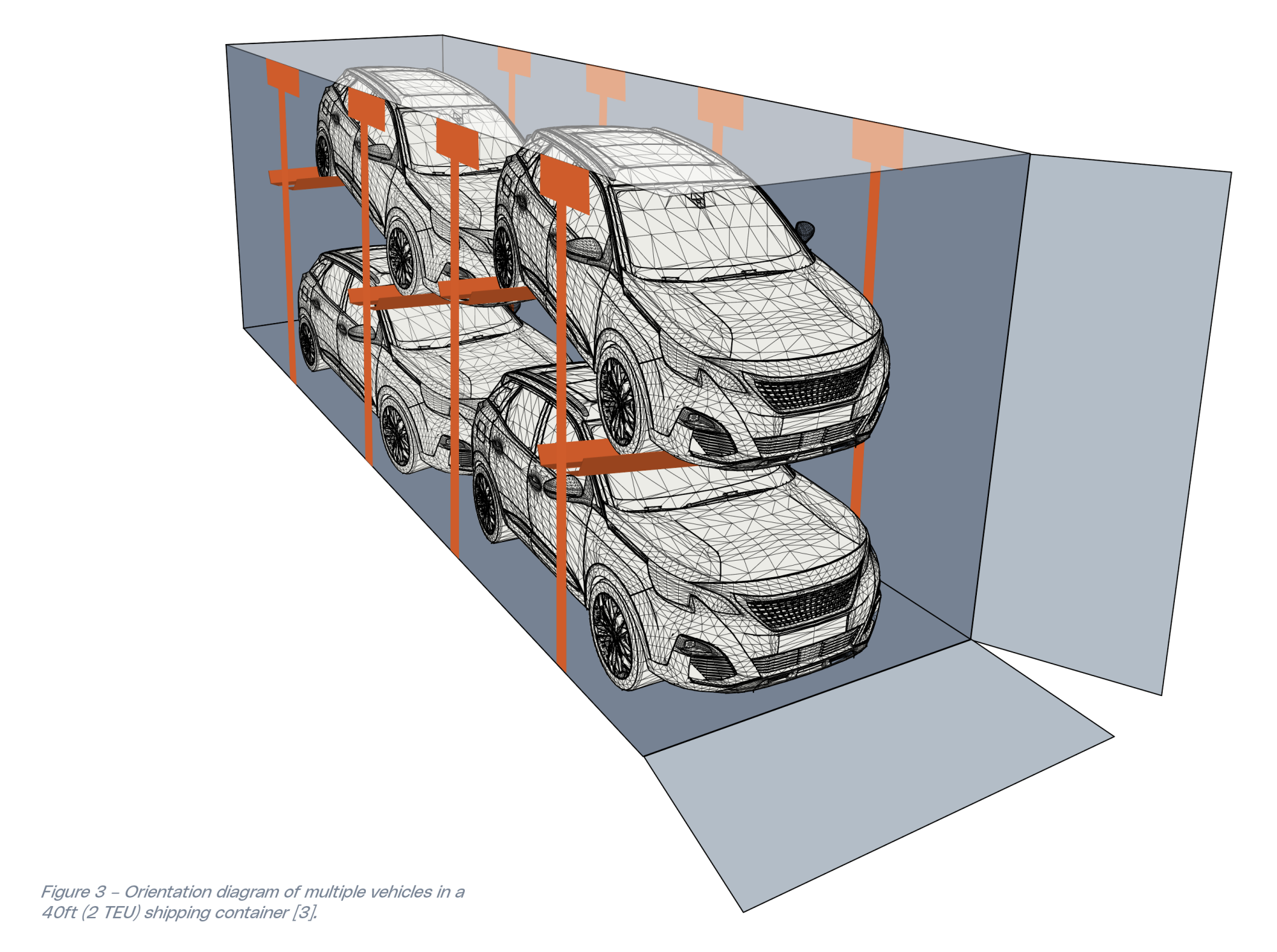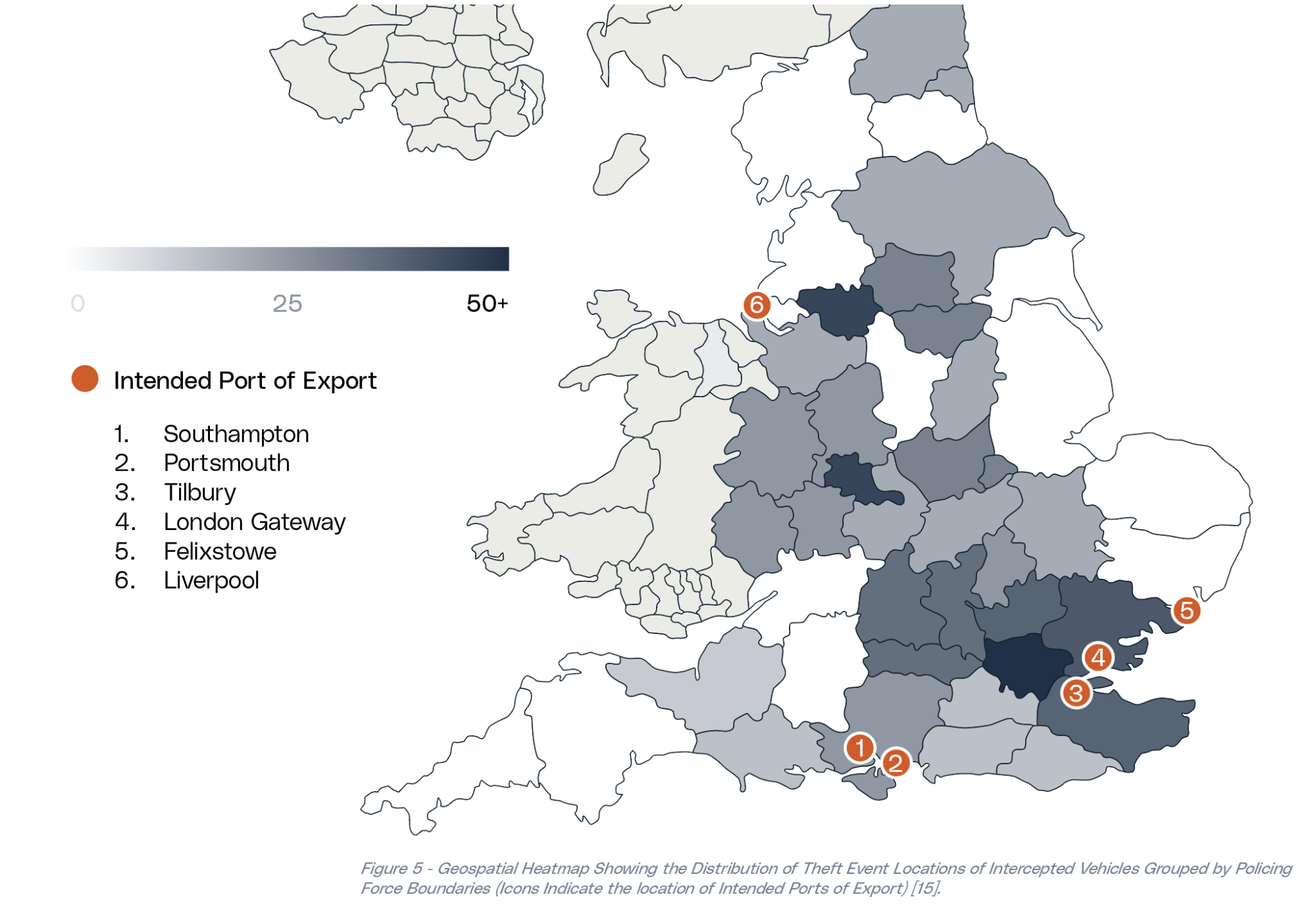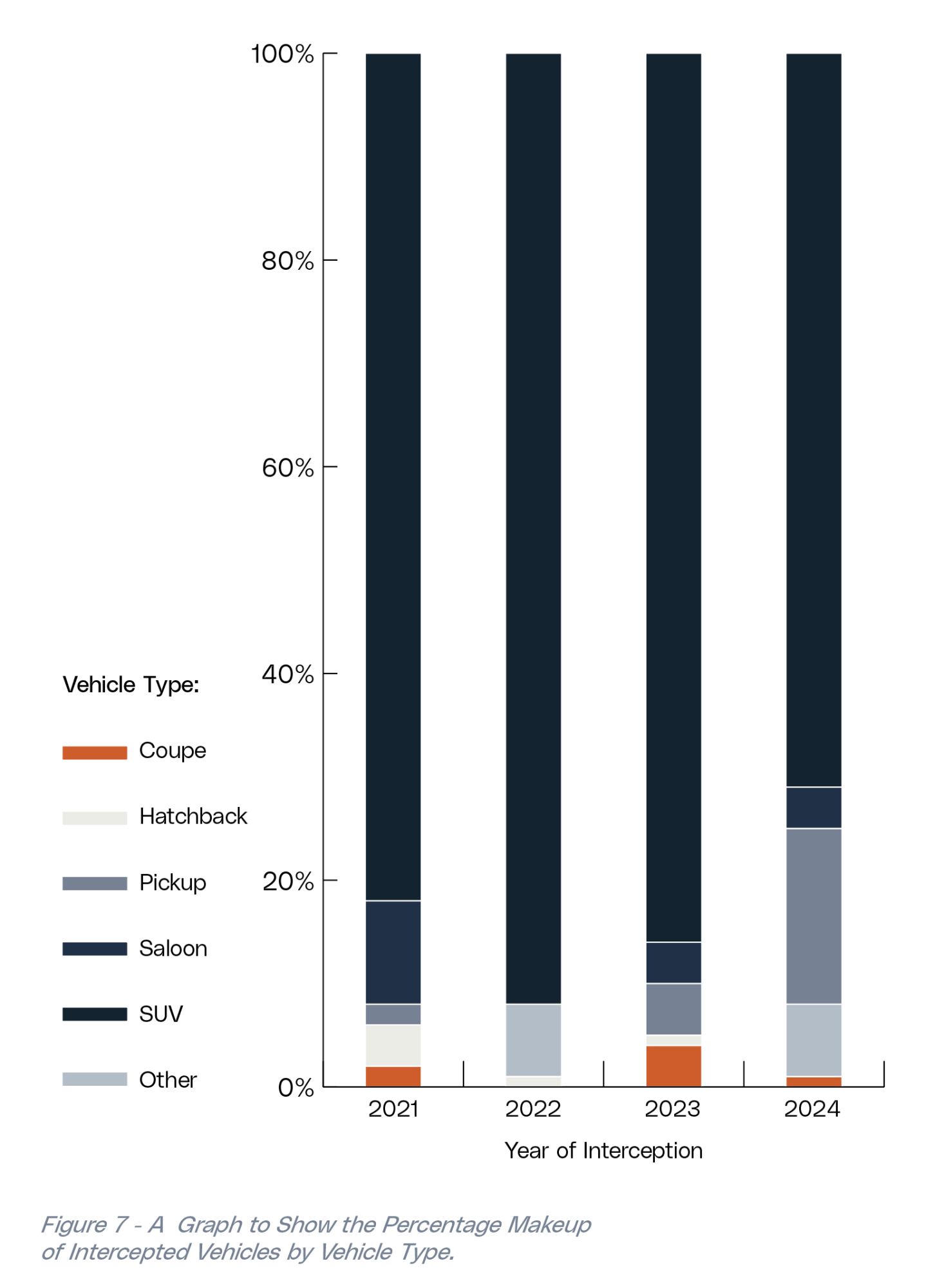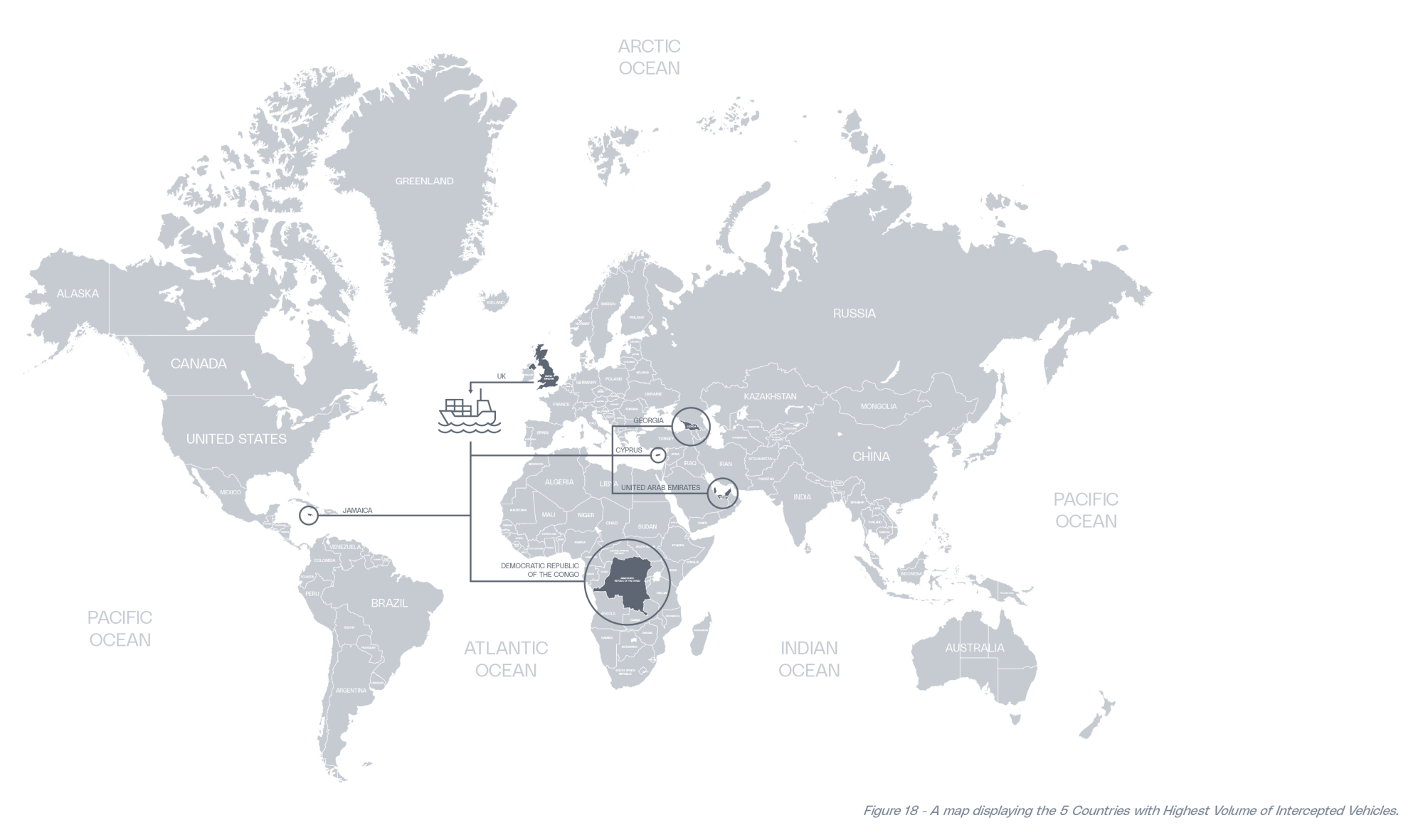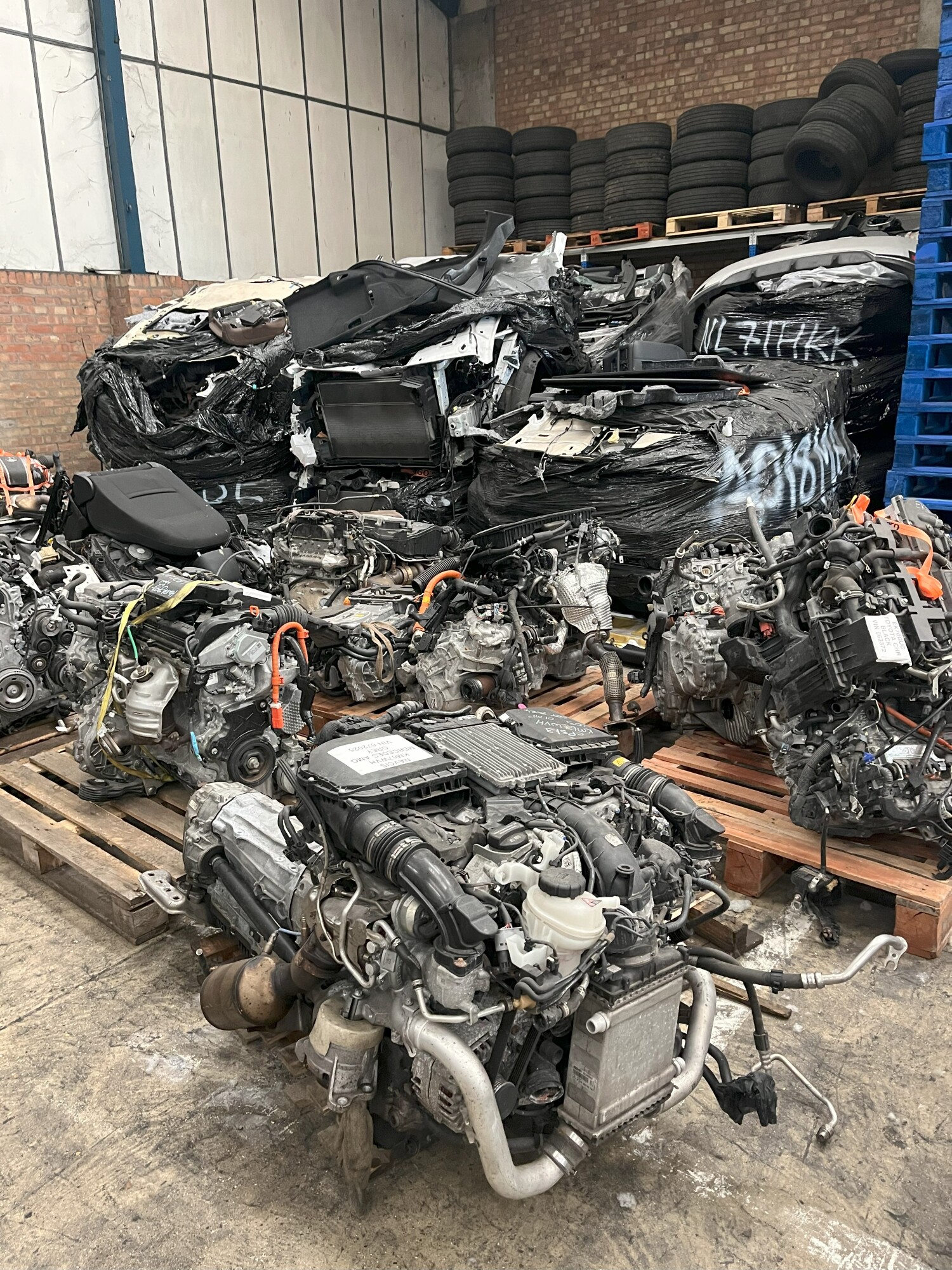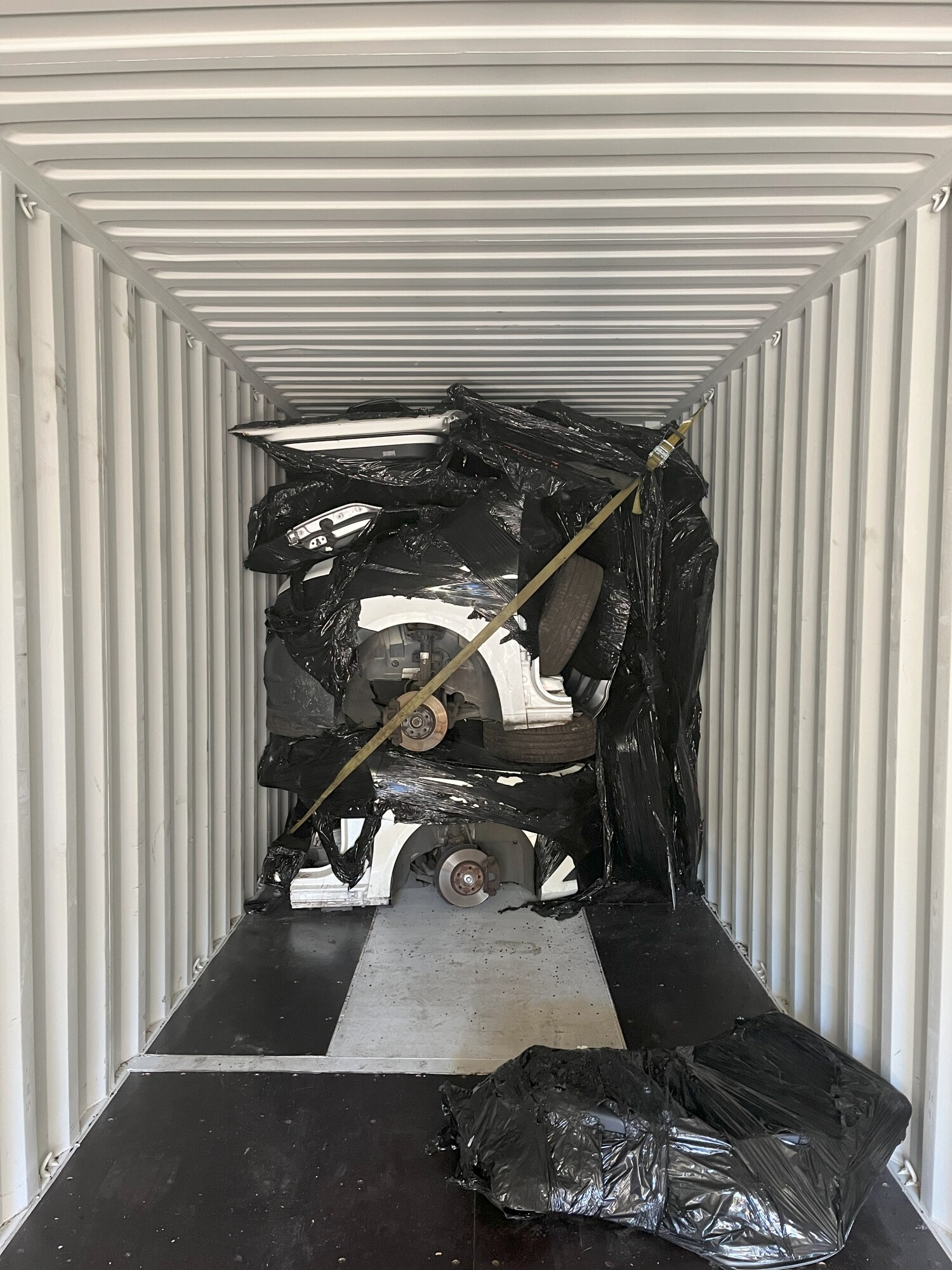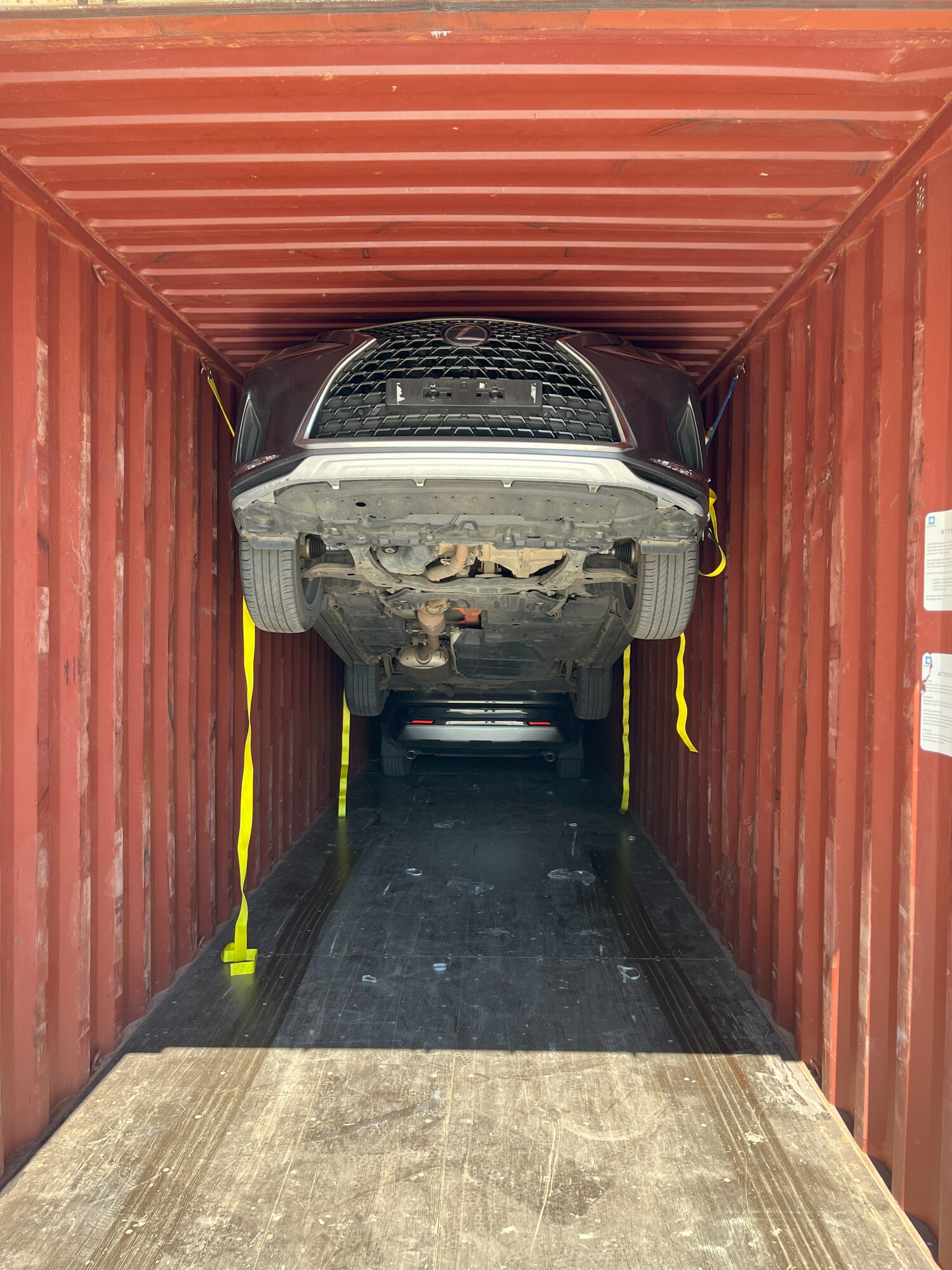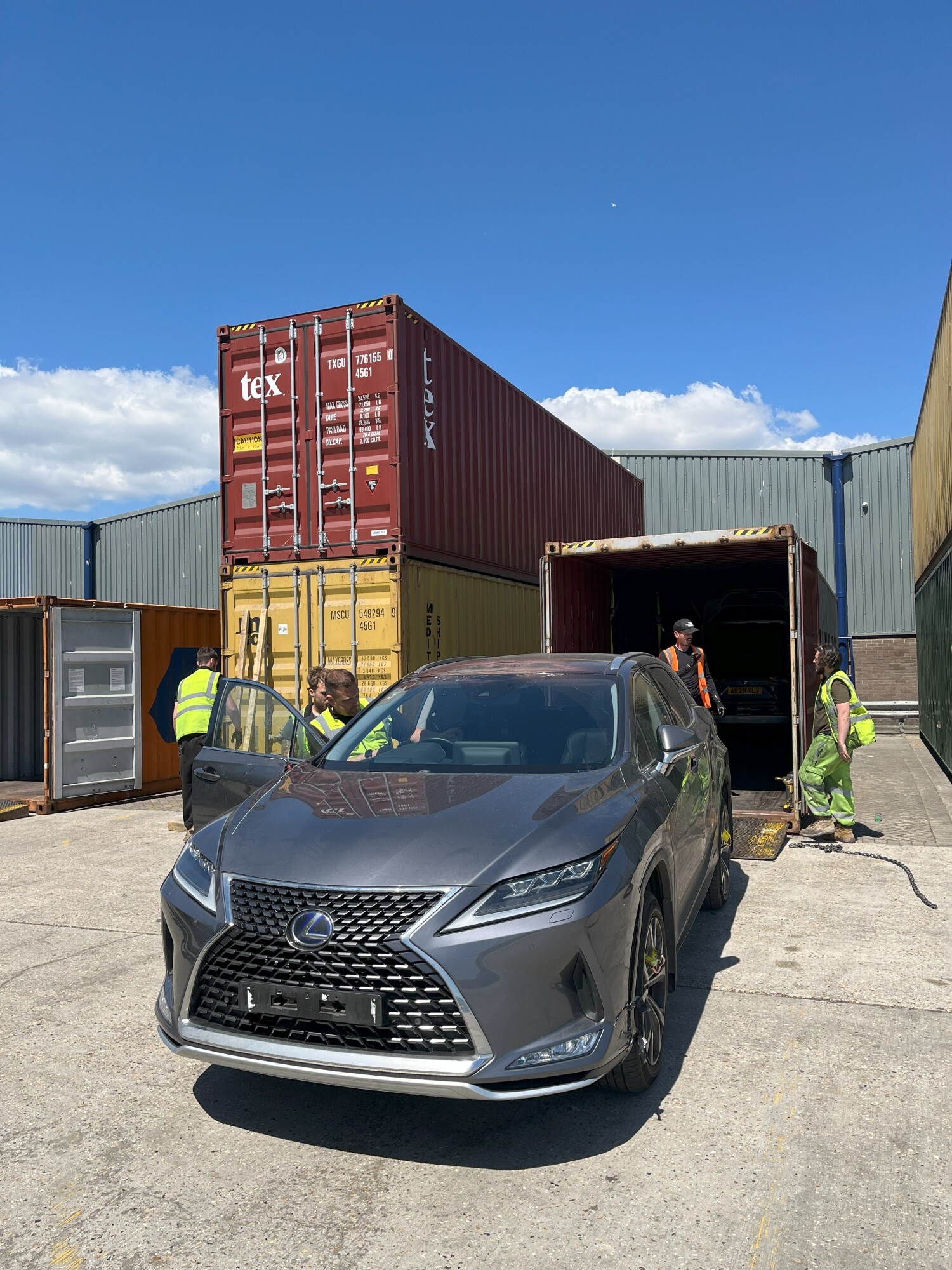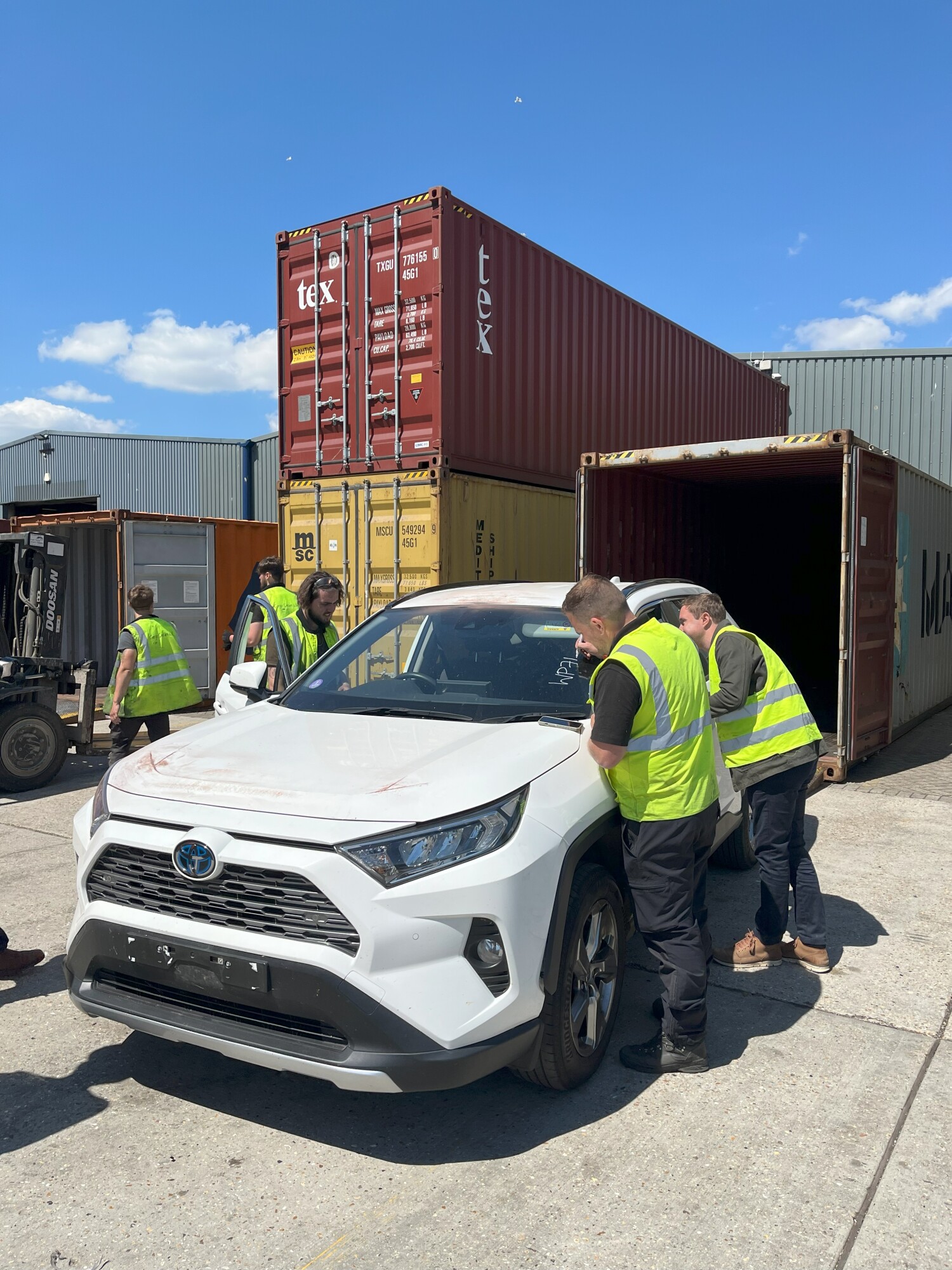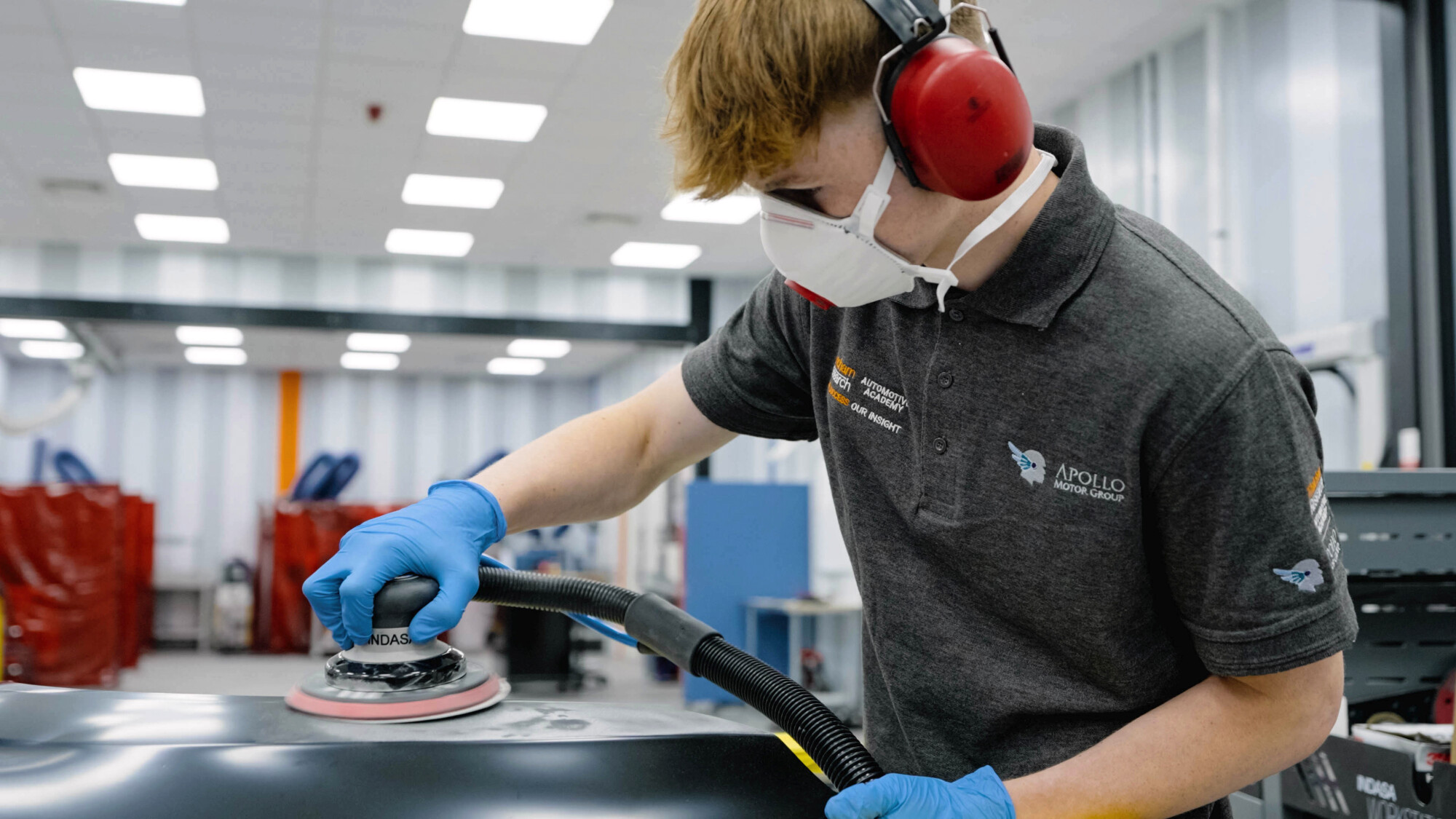
- International nature of UK vehicle crime revealed by new data from Thatcham Research in cooperation with National Vehicle Crime Intelligence Service (NaVCIS).
- Top five countries identified for stolen vehicle export are the Democratic Republic of Congo, UAE, Cyprus, Jamaica and Georgia.
- Parts scarcity, vehicle desirability, natural disasters and geopolitical events driving illegal market in a wide variety of luxury cars, SUVs and pickups, with insurers settling claims worth £640m* in 2024.
- The UK has the highest standards of vehicle security in the world, driven by Thatcham Research's 30 years of setting standards and testing.
- Vehicles are still being actively targeted by organised and sophisticated criminal gangs.
- Thatcham Research calls for further work to develop methods for safely remotely disabling vehicles and making stolen parts harder to reuse.
Thatcham Research, the UK's only not-for-profit automotive risk intelligence centre, has joined forces with the National Vehicle Crime Intelligence Service (NaVCIS) on a new investigation which reveals the international scale of the UK's stolen vehicle problem.
Despite the UK having the highest levels of on-vehicle security in the world, a vehicle was stolen every five minutes in 2024. In terms of standard features and optional extras, vehicles from the UK are often better equipped than those from other markets, making them a target for international criminal gangs.
Uncovering the major routes and countries used by organised criminal gangs to export a wide variety of luxury cars, SUVs and pickups, Thatcham Research's new data also reveals the reasons why vehicles stolen in the UK are being exported countries around the world. 52% of the vehicles intercepted by NaVCIS were from premium and luxury manufacturers and 79% of all interceptions were SUVs, showing a strong appetite for this class of vehicle for usage and parts.

The top five countries identified for stolen vehicle export by Thatcham Research and NAVCIS's new data (2021-2024) are the Democratic Republic of Congo (38.5%), UAE (20.1%), Cyprus (6.7%), Jamaica (5.7%) and Georgia (5.1%). This illegal export market is driven by factors as wide ranging as the scarcity of vehicle parts, desirability of certain makes and models, geopolitical events and even natural disasters.
Geography is a key factor in the number one destination for UK stolen vehicles, the Democratic Republic of Congo, with its central positioning on the African continent, deep seaport and borders with nine countries making it an ideal distribution hub to other markets.
Flooding in the UAE last April is believed to have driven a surge in theft of one popular SUV model, with criminal enterprises exploiting the shortage of replacement vehicles and spare parts available through official channels by using stolen vehicles to fill the void. For example, dealerships of targeted brands were quoting three months for the delivery of a replacement vehicle whereas it can take a ship just 25 days to travel from London Gateway to Jebel Ali.
Cyprus and Jamaica are both countries that drive on the left, making both the high standard specification of UK vehicles and the steering wheel position a key factor in these markets appearing at third and fifth respectively. Cyprus is also a gateway country to other destinations for parts and vehicles which border the Mediterranean, whilst Jamaica has seen a rise in part due to the imposition of an imported car tariff, which has made the trade more profitable.
Geopolitical factors also have an impact on the illegal vehicle markets, with Georgia a key destination, potentially because of heavy sanctions and withdrawal of an official presence by OEMs increasing demand for vehicles and parts in neighbouring Russia. The conflict in the region has also altered the types of vehicles being stolen, with pickup trucks rising to 16.78% of vehicles intercepted in 2024, up from 4.71% the year before.
Chief Research and Operations Officer at Thatcham Research, Richard Billyeald commented: “Thatcham Research has played a pivotal role in establishing security standards and conducts testing of vehicles for vehicle manufacturers, which has resulted in the UK having the highest levels of standard security equipment fitted to new vehicles. The result is that the casual theft and joy riding of the 80s and 90s has all but disappeared, with vehicle manufacturers having succeeded in making it very difficult for amateurs to steal modern vehicles.”
“However, the organised criminal gangs who have replaced them are well-funded and sophisticated in their approach, combining specialist electronic equipment with an international logistics network. Raising vehicle security alone will not prevent thefts, we believe that beating these criminals requires cooperation between government agencies, vehicle manufacturers and ourselves to reduce the value of stolen assets and therefore the incentive to steal them.”
“Parts scarcity, vehicle desirability, natural disasters and geopolitical events is driving an illegal market in a wide variety of luxury cars, SUVs and pickups, with insurers settling claims worth £640m in 2024.
“We will continue to work with vehicle makers to improve vehicle security and establish how to remotely disable stolen vehicles in a safe manner, as well as making stolen parts more difficult to reuse.”
Thatcham Research, based in Thatcham, Berkshire, wrote the first widely-adopted vehicle security standards in 1993 and has been conducting security, Advanced Driver Assistance System, impact testing and repair assessments for the insurance industry and vehicle manufacturers for more than 50 years in its specially equipped, multi-discipline testing facilities. This unique skillset and the data that it produces is being fed into the Thatcham Research Vehicle Risk Rating, the most comprehensive view of vehicle risk factors that go into calculating insurance premiums.
*ABI 2024 claims data

